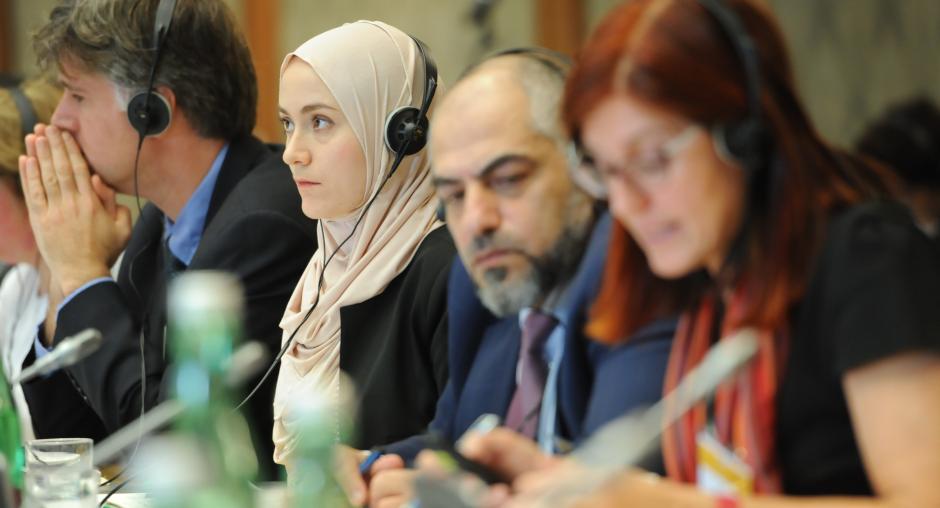OSCE/ODIHR toolkit to help states, civil society adopt comprehensive approach against hate crime presented at Vienna event

A toolkit developed by the OSCE Office for Democratic Institutions and Human Rights (ODIHR) to assist participating States in adopting a comprehensive approach to countering hate crime was presented to government officials and civil society representatives at a conference organized by ODIHR in Vienna on 14 November 2018.
The toolkit, developed as part of the Office's Building a Comprehensive Criminal Justice Response to Hate Crime project, includes training packages, methodologies and guidelines that can be used by public institutions and civil society involved in addressing hate crime. The materials were developed based on project work in Bulgaria, Greece, Italy and Poland.
“It is only through a whole-of-government approach that states and criminal justice systems can effectively respond to hate crimes. This lesson, along with many others that we have drawn from our co-operation with partners, can be applied across the OSCE region,” said Cristina Finch, Head of ODIHR’s Tolerance and Non-discrimination department. “While this project provides the building blocks for a comprehensive approach to hate crime, major challenges still lie ahead for international organizations, national institutions and civil society. ODIHR will continue to provide support and expertise to all those who are ready to collect data, strengthen capacities and partnerships and, most of all, protect the victims of hate crimes.”
The conference brought together civil society activists, officials from project countries and national points of contact on hate crime from OSCE participating States, as well as representatives of the European Union, the Council of Europe, the International Association of Prosecutors and the United Nations High Commissioner for Refugees (UNHCR).
Petya Karayaneva, a Protection Officer with the UNHCR, told the conference: “One of the main challenges in combatting racism and xenophobia is under-reporting due to the victims’ fear and lack of trust in redress mechanisms. The protection of victims should be at the epicenter of all efforts to combat racism and xenophobia. Bringing affected communities closer to authorities will ensure that community fears and perspectives feed into appropriate policies and strengthen support for victims.”
The ODIHR toolkit includes a manual on conducting joint training for police and prosecutors, a methodology on developing an inter-agency co-operation protocol on addressing hate crimes, an innovative methodology to map unreported hate crimes and guidance on implementing a comprehensive approach to addressing hate crime on a regional level.
The event marked the closure of the project, which ODIHR implemented with financial support from the European Union and the United States.
